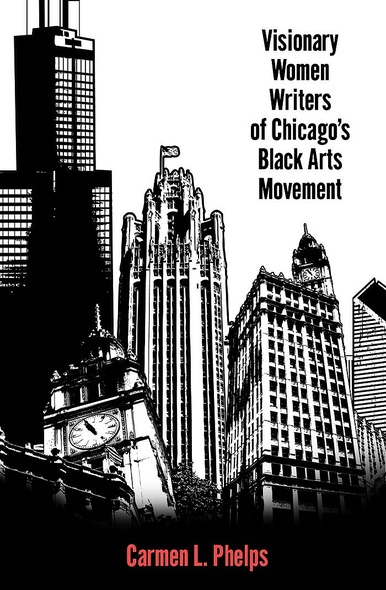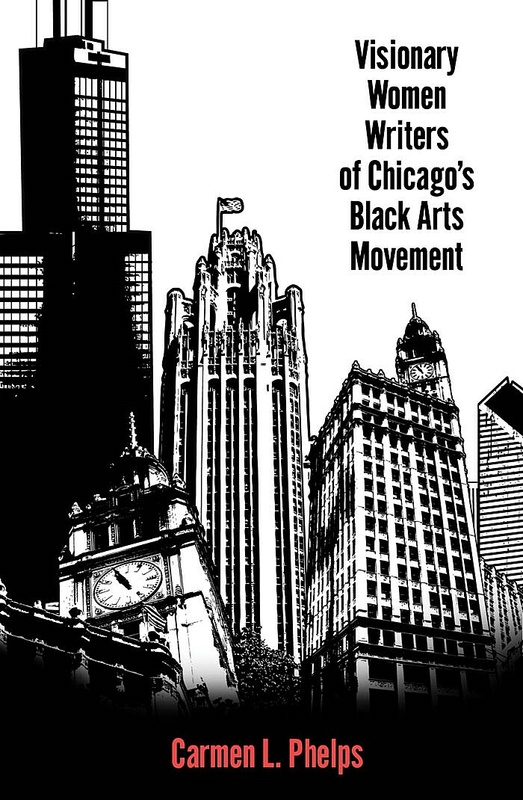
Visionary Women Writers of Chicago's Black Arts Movement
A disproportionate number of male writers, including such figures as Amiri Baraka, Larry Neal, Maulana Karenga, and Haki Madhubuti, continue to be credited for constructing the iconic and ideological foundations for what would be perpetuated as the Black Art Movement. Though there has arisen an increasing amount of scholarship that recognizes leading women artists, activists, and leaders of this period, these new perspectives have yet to recognize adequately the ways women aspired to far more than a mere dismantling of male-oriented ideals.
In Visionary Women Writers of Chicago’s Black Arts Movement, Carmen L. Phelps examines the work of several women artists working in Chicago, a key focal point for the energy and production of the movement. Angela Jackson, Johari Amini, and Carolyn Rodgers reflect in their writing specific cultural, local, and regional insights, and demonstrate the capaciousness of Black Art rather than its constraints. Expanding from these three writers, Phelps analyzes the breadth of women’s writing in the BAM. In doing so, Phelps argues that these and other women attained advantageous and unique positions to represent the potential of the BAM aesthetic, even if their experiences and artistic perspectives were informed by both social conventions and constraints. In this book, Phelps’s examination brings forward a powerful and crucial contribution to the aesthetics and history of a movement that still inspires.
Phelps opens up new space in the study of African American women’s poetry and black feminism. She reconsiders the Chicago Black Arts Movement and its legacies by foregrounding the productive nature of tension as African American women poets move with and push against the flow of the black (male) aesthetic. This long-overdue book deepens our understanding of the role of the Black Arts Movement in the formation of post-1960s African American women’s literature.
Visionary Women Writers of Chicago’s Black Arts Movement fills a gap in contemporary scholarship on the women writers of the Chicago Black Arts Movement. Its discussion of OBAC and of Johari Amini, Carolyn Rodgers, and Angela Jackson begins to untangle the complex subtleties of that movement—its paradoxes, its challenges, its achievements, and its legacy. Indeed, it is required reading for scholars interested in contemporary black women’s poetry specifically and in the Black Arts Movement more generally.
Carmen L. Phelps is assistant professor of African American literature at the University of Toledo. Her work has appeared in Living the Funk, Journal of Lesbian Studies, and the African American Review.




